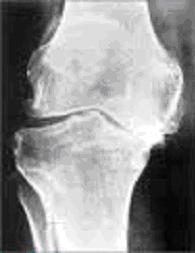Quad Strength Predicts Knee OA & Knee Pain!
Reference:Segal NA, et al Effect of thigh strength on incident radiographic and symptomatic knee osteoarthritis in a longitudinal cohort. Arthritis Rheum. 2009 Sep 15;61(9):1210-7.
The question remains, “Can knee extensor strength predict risk for knee OA or knee pain?”
This relatively massive study involved over 5000 adults, 50-79 years old who had no significant history of knee pain.
Quadriceps isokinetic strength was measured at baseline and for 2 � years the subjects were followed for the development of radiographic knee OA and/or knee pain.
Result Summary: Two and a half years later, about 10% of people in the study developed knee OA, and those with weak quadriceps muscles, had significantly more OA and pain.
Knee extensor strength was not predictive of incident radiographic tibiofemoral OA, BUT was predictive of symptomatic knee OA.
What PTs need to promote: A study involving thousands of men and women showed that having strong thigh muscles could help prevent knee pain and osteoarthritis. Physiotherapists are the ideal health care providers and experts in prescribing the correct strengthening exercise program.
Posted on: July 02, 2010
Categories:


